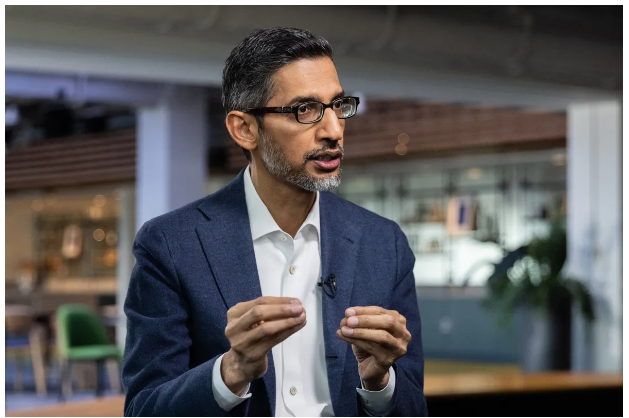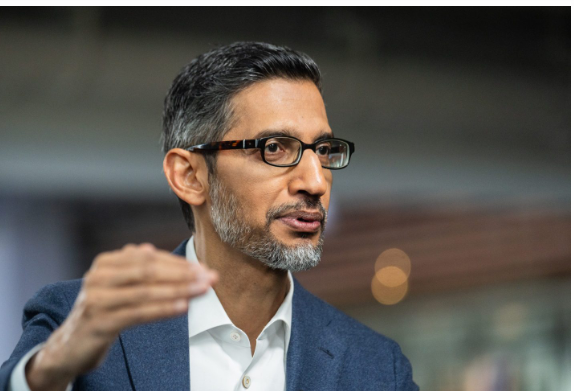 Sundar Pichai, the CEO of Google, has candidly acknowledged that the antitrust cases facing his company could drag on for several years. These legal battles come at a pivotal time when tech giants are increasingly under scrutiny for their market dominance. The U.S. Justice Department, alongside other international regulators, has been intensifying efforts to curtail Google’s monopoly in both search and digital advertising markets. As these trials unfold, Pichai’s recent comments highlight the drawn-out nature of the legal challenges and their potential impact on the company and the broader tech landscape.
Sundar Pichai, the CEO of Google, has candidly acknowledged that the antitrust cases facing his company could drag on for several years. These legal battles come at a pivotal time when tech giants are increasingly under scrutiny for their market dominance. The U.S. Justice Department, alongside other international regulators, has been intensifying efforts to curtail Google’s monopoly in both search and digital advertising markets. As these trials unfold, Pichai’s recent comments highlight the drawn-out nature of the legal challenges and their potential impact on the company and the broader tech landscape.
Google’s dominance in online search and digital advertising has placed the company at the center of two major antitrust lawsuits in the United States. The Justice Department’s main allegations are that Google maintains illegal monopolies, particularly through exclusive deals with hardware companies, web browsers, and other platforms that make Google Search the default engine. These agreements, critics say, stifle competition and prevent smaller competitors from gaining market share.
The first trial, which addresses Google’s advertising business, started earlier this month. The second trial focuses on Google’s search dominance, where the government has claimed that the tech giant has engaged in anti-competitive practices by prioritizing its services in search results while pushing competitors out of the digital marketplace. Google has already faced setbacks in this area, losing an initial round of the case.
During an interview, Pichai outlined his expectations that these legal disputes will stretch over many years. He underscored that while Google plans to vigorously defend its position, the litigation process is inherently slow and likely to evolve through multiple phases. Pichai referenced a previous antitrust case in Europe, where Google successfully appealed a €1.5 billion ($1.7 billion) fine related to advertising practices. That process, which took over four years to resolve, is a clear indication of how protracted such legal battles can become.
Despite the complexity of the legal situation, Pichai remains firm in his assertion that the cases won’t immediately disrupt Google’s operations. He stated that Google will continue to innovate, even in the midst of legal scrutiny, emphasizing the company’s efforts to balance legal defense with its commitment to providing services to its users.
The outcomes of these trials could have significant ramifications for Google’s business model. Should the courts rule against the company, it may be forced to change how it structures its relationships with partners, and even how it organizes its products within search results. The ripple effects of any penalties or mandatory structural changes could alter the broader digital advertising and search engine landscapes. For Google, which earned nearly $283 billion in 2022 from advertising alone, any adverse legal decision could severely disrupt its revenue streams.
Pichai has expressed concern about the chilling effect these trials may have on innovation. According to him, the antitrust allegations do not account for the complexities of digital markets and risk undermining the very dynamics that have allowed platforms like Google to thrive. He insists that Google’s scale is not an impediment to competition but a catalyst for improved products and services.
While the U.S. trials are currently at the forefront, Google is also facing mounting pressure from other international regulators. The European Union has already fined the company in multiple cases for anti-competitive behavior in areas ranging from shopping services to mobile operating systems. Additionally, countries like India, Australia, and South Korea are also tightening their regulations around tech monopolies.

In an increasingly interconnected world, Pichai’s approach to managing these legal battles will be closely watched. Tech industry analysts note that these cases are not just about Google but about the future of big tech in general. If regulators succeed in forcing Google to make concessions, it could open the door to more regulation across the tech industry, potentially reshaping how the digital economy functions.
Despite the ongoing legal threats, Google has its eyes set on the future, with a strong focus on artificial intelligence (AI) and digital education initiatives. Recently, Pichai announced the launch of the $120 million “Global AI Opportunity Fund,” which aims to boost AI education, particularly in underrepresented regions. This initiative reflects Google’s broader vision of empowering users with technology while simultaneously addressing the next generation of challenges in the tech sector.
Pichai’s remarks signal that while Google is navigating uncharted legal waters, the company is not standing still. Innovation remains at the core of its strategy, and the coming years will determine not only the outcome of its legal fights but also the direction in which the company steers its technological capabilities.
The ongoing antitrust litigation involving Google is emblematic of the larger tensions between governments and tech giants over market power, competition, and consumer rights. Sundar Pichai’s prediction of a long, drawn-out battle highlights the complex nature of these legal challenges, which may reshape the future of big tech. While the ultimate outcomes remain uncertain, the stakes are high for Google, its competitors, and the entire digital economy.
Ennywealth


